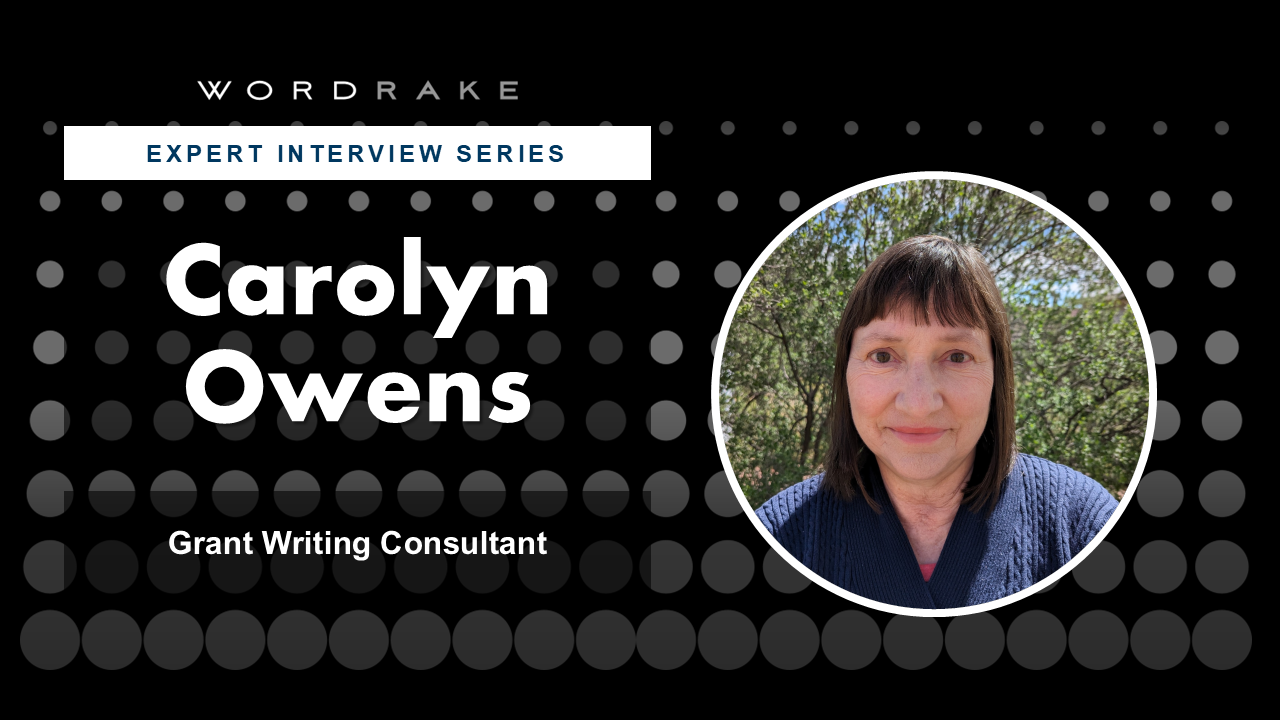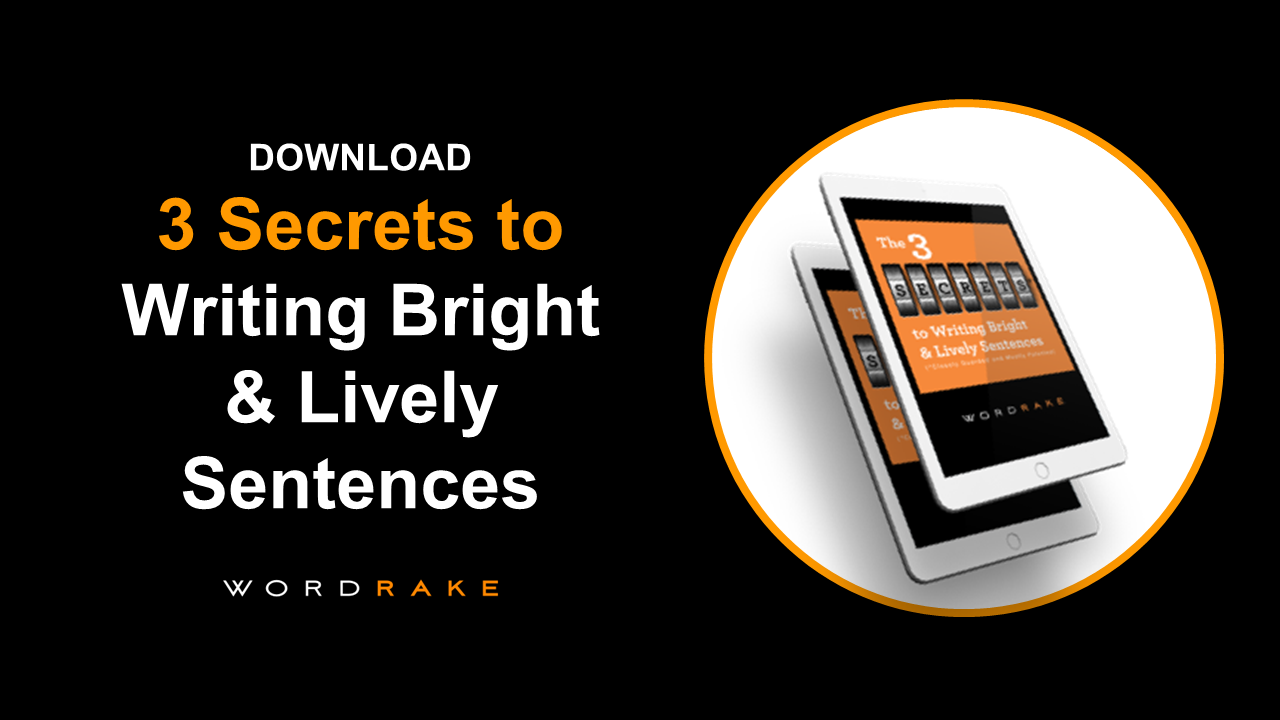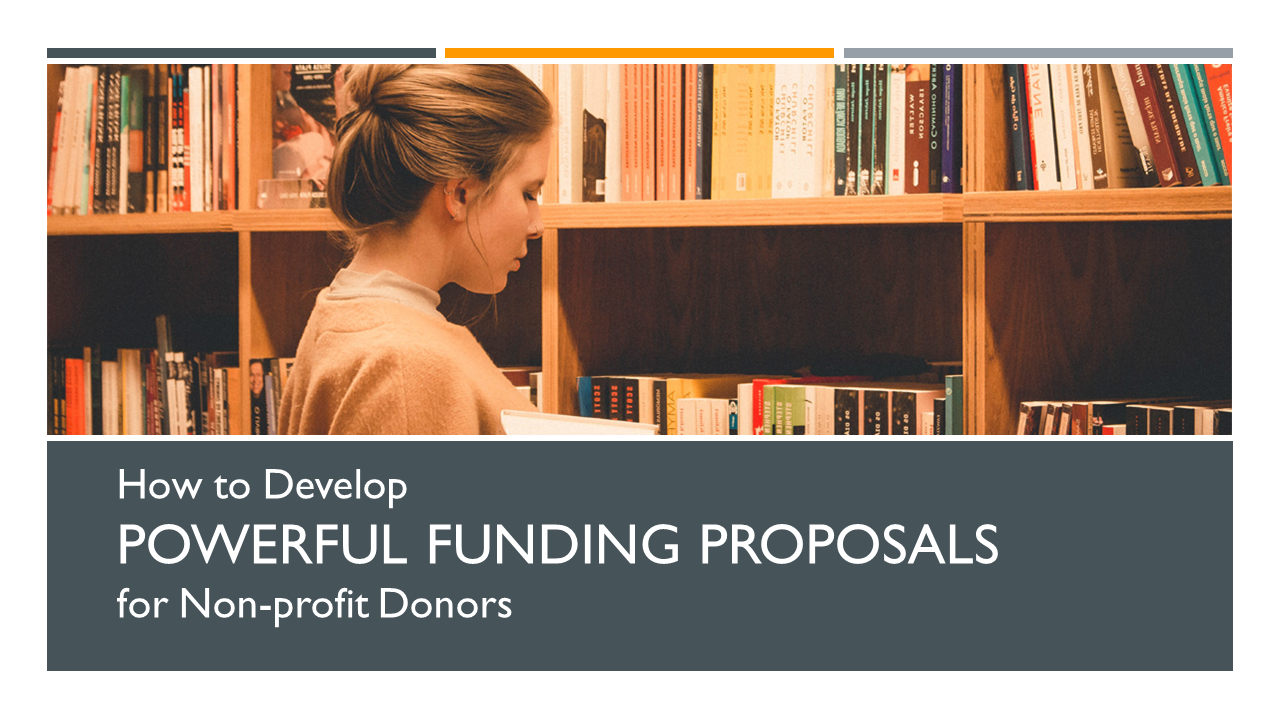As a grant writing consultant, Carolyn Owens has driven revenue for clients to fund healthcare, youth, food and agriculture, substance abuse prevention, employment, and housing programs. She shares insight about her career, the differences between proposal writing and business writing, and why writing quality is important in her industry.
What is your role and how are you involved in proposal writing?
I am a grant writing consultant. In that role I assist nonprofits, municipalities, tribes, and for profits with identifying and applying to grant prospects. As part of the proposal response I assist clients in program design, budgeting, and evaluation of the program or project. I offer both “by the project” and ongoing grant writing assistance. I have been a grant writer for 28 years and a grant writing consultant for 14 years.
What do you love about your job? What do you not love?
I enjoy helping clients obtain funding for their important projects. Program design and budgeting is also a fun part of the project (grant writers are weird). However, philanthropy is laden with many issues and is very unequitable. Additionally, the process to apply is extremely burdensome and funding is all too often restricted. This is a very big conversation. I encourage readers to research this further.
What makes you reject a prospective writing job?
If I don’t think the applicant has a decent chance of award, and/or there are very few awards (meaning low chance of award), or if it is not an area of expertise, or there are red flags, such as vague information about what the grant will do, lack of staff and systems in place to manage the award, or if they are just plain rude!
What are your proposal writing pet peeves?
I spend more time trying to access online applications than I do writing the response. If only I could write a proposal for every request but sadly the majority are online. Everyone uses a different system and most are awful. Every funder wants something different, the questions don’t make sense or allow you to tell about the organization/project. All too many have budgets you have to fill in online, tripling the time you spend to apply. Along with online applications, I would add funder guidelines that are not clear.
What is proposal writing? How is it different from other business writing?
Grant proposals have more in common with marketing materials than business writing or a college essay. Generally, you want to “warm up” language in a proposal for a grant funder. However, this does depend on the funder – an NIH or other research proposal will be very different than a request to a private foundation.
How can organizations determine which RFPs are worth pursuing?
For any funder always look at a few things first – eligibility, number of awards, and purpose of the funds. Grants, especially federal grants, are very time intensive. More awards equals a better chance of award. Also, you would be surprised how many applicants forget to verify they are eligible to apply. Eligibility can include type of entity (non-profit, university, government, etc.), geographic area, size of organization, and age of organization. As with all grant prospects, you must read the RFP (guidelines) very carefully. Reviewing prior awards is a great way to see what types of programs have been funded.
Is there a specific structure or format to writing a proposal? How do you structure a proposal if there are no specific guidelines given about it?
Proposals (and applications) must follow the funder guidelines very carefully. Make sure you link your program with the funder priorities (our program supports XYZ Foundation priorities to help older cats). Make your responses clear and easy to understand. Don’t be coy or clever, don’t use too many statistics, and don't use statistics without a cite.
Put yourself in the reviewers’ shoes, can they understand what your organization does? Who, what, where, when, how? Answer “why you?”. Don’t make them hunt for answers to the questions in the guidelines, clearly show the question and your response. If it’s a proposal (not an online application), use white space, photos, charts, and graphs to make it easier for the reviewers to understand your program or project. Remember that they often have 10 to 20 or more proposals to review. If you have time, have someone outside of the organization read it to make sure there is no jargon or assumption of information.
If it’s a project, show you have done your homework. This includes having quotes for costs, feasibility studies, marketing analysis, or similar. Are you ready to proceed with the project?
Rarely a funder will not have a website nor guidelines, the 990 just says “submit a proposal”. I recommend sending a 3 to 5 page proposal that gives the reviewers information about who you are, what you do, why it’s important, and what their funding will do. Information about staff qualifications, financial management, and recent accomplishments is also nice to include. Send with a budget and your IRS letter (if you are a nonprofit). Review who they have funded (this is usually in the 990) and reference a similar program.
For any funding, having a connection prior to submission will help you get funded. If you can reach a foundation staff person to discuss your request it makes a big difference. They might tell you they don’t have funding, in which case you won’t waste anyone’s time.
What is a standard practice that you wish companies would stop following?
I assume you mean corporate funders and foundations? Often they don’t provide clear information about how to apply, or they don’t tell you you won’t get funded if it’s not a specific program, or you have an employee champion, etc. If it’s corporate giving vs a corporate foundation, there is no 990 for research about prior giving. I’m not sure they have any specific standard practice though.
Where should organizations search for grant opportunities?
There are many paid funding databases. My favorites are the Foundation Directory and Grant Station. Your library may have access to funding databases at no cost with your library card. You can look at related organizations and see who funds them. Sign up for funding alerts, most of those are free and are a less time consuming way to identify prospects. Companies fund where they are located so look up what companies are in your area and see if they provide funding.
Prospecting is horribly time consuming, I will spend two or three hours and only find one or two prospects.
What skills do you need to write winning grant applications?
Follow the directions very carefully. Be clear and concise. If there is scoring write for points. The longer I do this the more I am convinced funders decide by throwing darts at a dart board. It’s a very random process. I have a colleague who received a perfect score but still wasn’t funded.
When writing a grant application, is it more important to have solid data, or to appeal to emotions?
Both, but it depends on the program and the funder. A research grant needs solid data, and a request to a private foundation for a human service program needs both. Data to illustrate the need and the scope of the issue, plus a story of success.
Please note, ethical grant writers do not perpetuate “poverty tourism” or other writing that is overly emphasizing of challenges. Instead talk about how those you serve have overcome problems – emphasize the strengths of the people you serve to honor what they have done. It’s not just you doing XYZ service, that person does a lot to improve their situation.
How does AI change things for professionals proposal writers? Is there still value in hiring a human?
The AI results I have seen are abysmal. Writing is vague without specifics. Research results are not trustworthy at all. Do not use any AI for researching data or use AI results.
AI is extremely hard on the environment. It is useful for sorting data (taking a lot of data and sorting it vs pulling data from the Internet for research).
It may change in the future but for now you still need to use your brain.
Many grants and RFPs have strict word or page limits. How do you keep yourself within those limits while still including all the important information?
This can be a frustrating part of the process. I often spend more time getting within word limits than writing about the program. It’s a good writing challenge though! I know many grant writers use AI for this. I don’t bother but I have heard it can be good for that.
Are you willing to use AI in writing a proposal if your client or employer asks for it? Why or why not?
No, it’s actually slower than I am and produces poor results. The client won’t need me if they are only using AI.
Are you worried that human writers will be replaced by AI? Why or why not?
Not at this point. I have a friend who is a court reporter – she has heard for the past 25 years that her position will be replaced. Hasn’t happened yet. Go humans!
How do organizations know they need to hire a proposal writer?
They all know it, it’s more a matter of affording it.
How can organizations without a proposal writer on staff figure out who to hire?
You can look at the Grant Professionals Association website for a list of consultants. GPA grant writers all follow GPA ethics, which includes never taking a portion of the award for payment (if a grant writer says they will do this say thanks but no thanks). The list also shows areas of expertise.
Ask other organizations for recommendations. As with anything, do your due diligence. Have a consultant call (these are no cost) and see if you are a good fit for each other. Ask for a writing sample or two.
What questions should you ask a proposal writer before hiring them for a project?
Please don’t ask for win rate. There are far too many variables for this to be indicative of anything. As I mentioned, ask for writing samples. You can ask for references too. Finally, it’s okay to do a short trial period of three months for the contract to make sure it’s a good fit.
As with any contractor, buyer beware. If the grant writer makes big claims, back away. No one can guarantee a certain amount of awards (or any awards). A win rate of 80% or more is a red flag as that may mean they are inflating their results or “cherry picking” what they apply to. A retainer is not unusual but a large amount up front with inflated claims for results is a red flag.
What information should an organization have available when they start working with you?
Not all organizations are what is termed “grant ready”. Some don’t have their nonprofit status yet, some don’t have a board, some don’t have systems in place to accurately manage and measure grant awards. There are consultants who specialize in helping new nonprofits, from submitting IRS documents to preparing to be ready to apply to grants.
For specific projects, the organization should know what they want the grant to help them accomplish, with specific goals in mind. The request should support their mission and fit in with current direction and priorities.
What advice would you give to someone starting out in proposal writing?
There are grant mentors available to help (GPA has a roster, and colleagues will probably be happy to mentor you). Start with small grants, or as an assistant to a more experienced grant writer, writing sections of the grant, or helping with research. There are many classes and workshops of varying lengths and costs available; I am a trainer for my local library who offers grant classes at no charge.
What else do you wish we'd asked?
There is a perception that “grants are easy” and “anyone can write a grant”. Neither is true. Grants are extremely competitive (more so now) and it requires consistent effort to be successful. Despite your best efforts there will be more “no’s” than “yes’s”. It is slow to get funded, funders won’t fund you more than once, they won’t fund salaries or other essential costs such as internet, systems, websites, and similar, most make you apply every year, meaning a tremendous amount of time is spent on the grant “churn”. Grants are not a reliable way to fund your organization and generally should not make up more than 30% of your organizational budget.
I have spoken to people who want to hire me because they quickly discover there is a lot more to grant writing than they thought!
Finally, I always say there is more reading than writing in grant writing. You must read the guidelines (then read again and again), prior awards, studies, reports, the application/proposal questions carefully, etc.
About Carolyn Owens
Over Carolyn’s 28 years of grant writing and research experience, she has increased revenue for a wide variety of organizations including housing, economic development, youth programs, food banks, conservation organizations, healthcare, job, and housing programs. She has written for local, national, and international nonprofits, municipalities, and tribes, and helped them obtain millions of dollars in grant awards.
She has submitted to private and corporate foundations, community foundations, state, county, and city funding, as well as numerous federal agencies including USDA, HRSA, DOE (Education), DOE (Energy), HUD, DOT, DOJ, ACF, EPA, EDA, AmeriCorps, SAMHSA, VA, CDC, and NFWF.
Carolyn offers expertise in program design, logic models, implementation plans, budgets, preparation of grant applications with strict attention to detail, and nonprofit best practices. She is a member of the Grant Professionals Association and Community Centric Fundraising and follows their ethical guidelines.
She has provided training in grant prospecting and grant writing for the Pima County Public Library, The Community Food Bank of Southern Arizona, the Community Foundation of Southern Arizona, Arizona Department of Education, and Tufts University.









